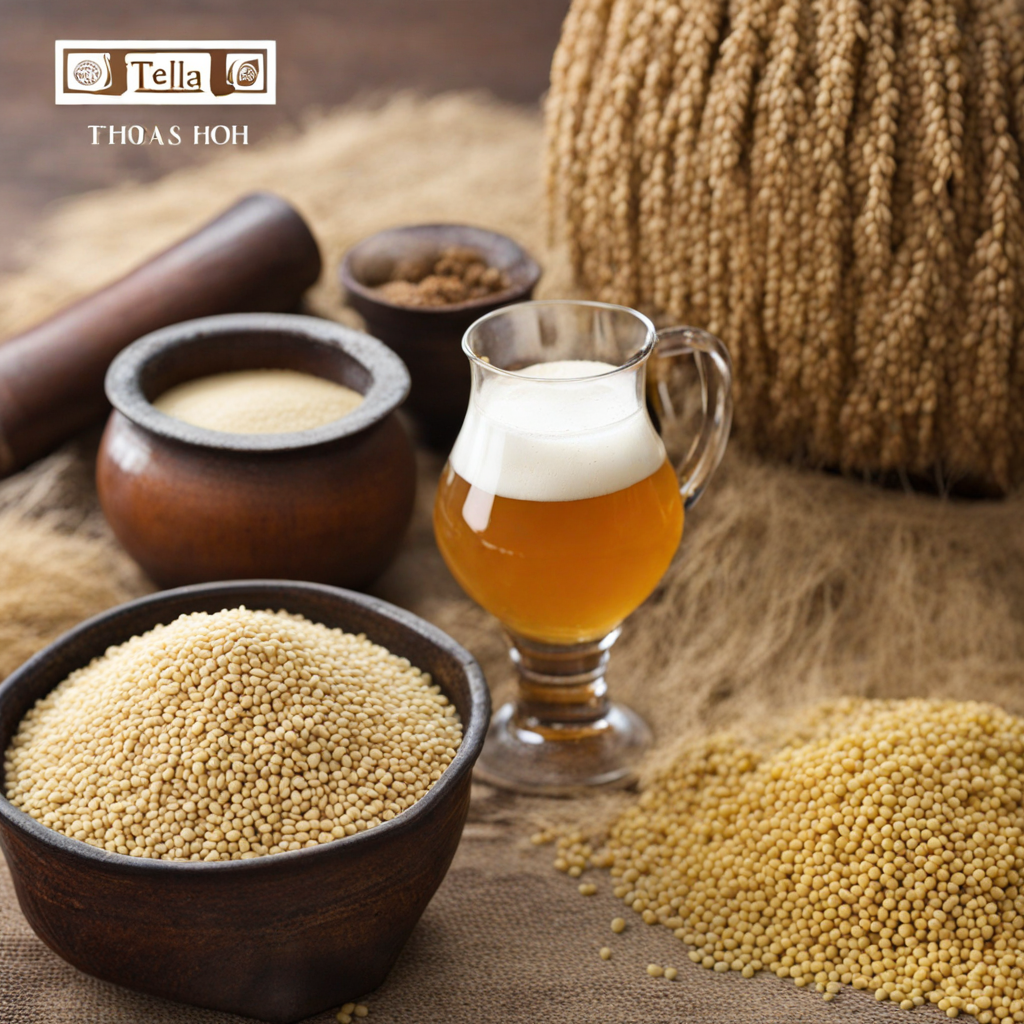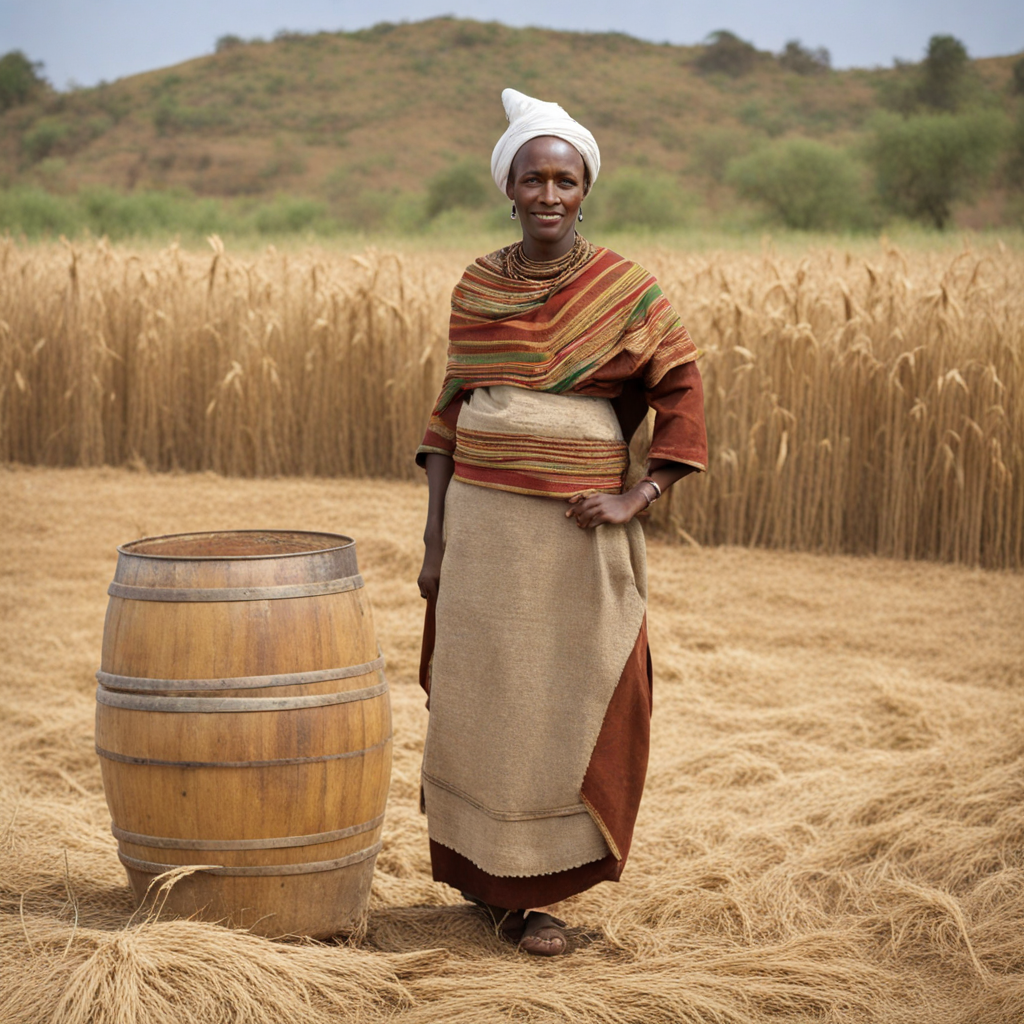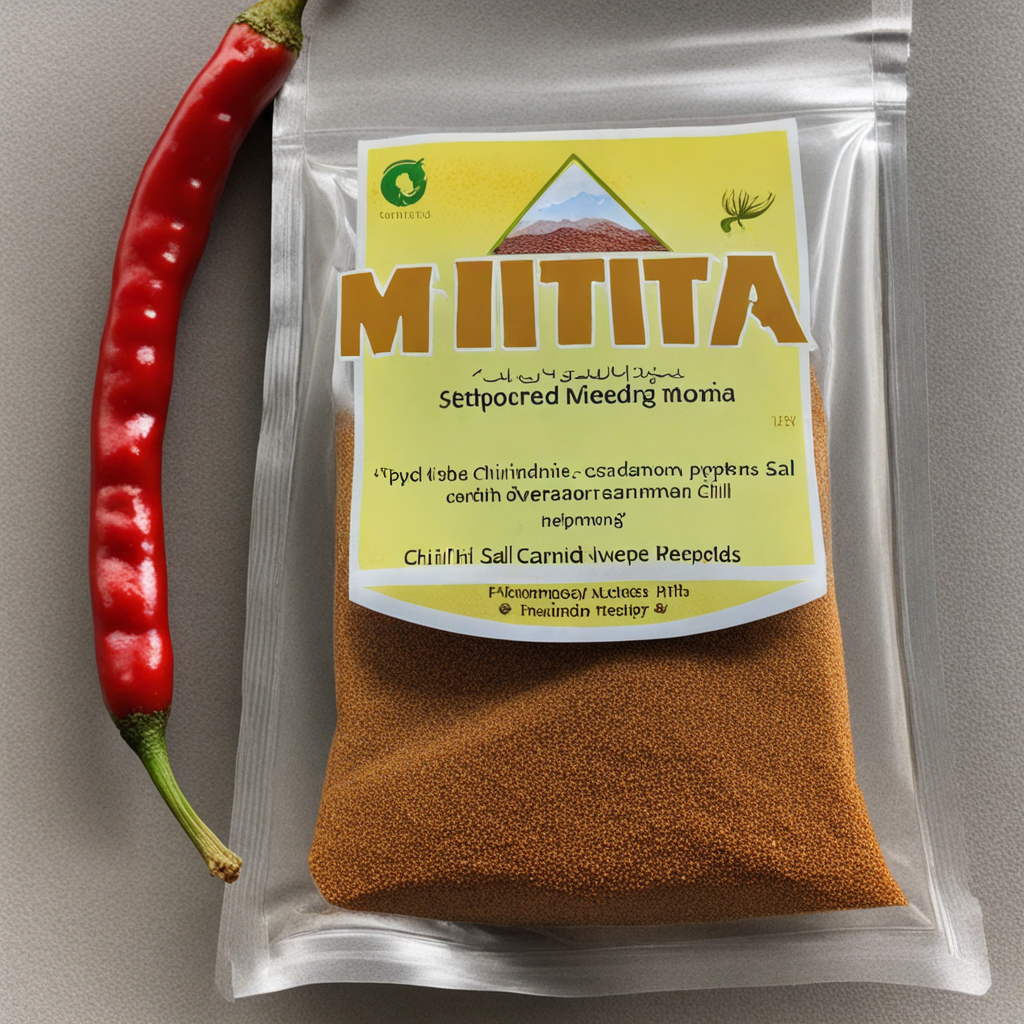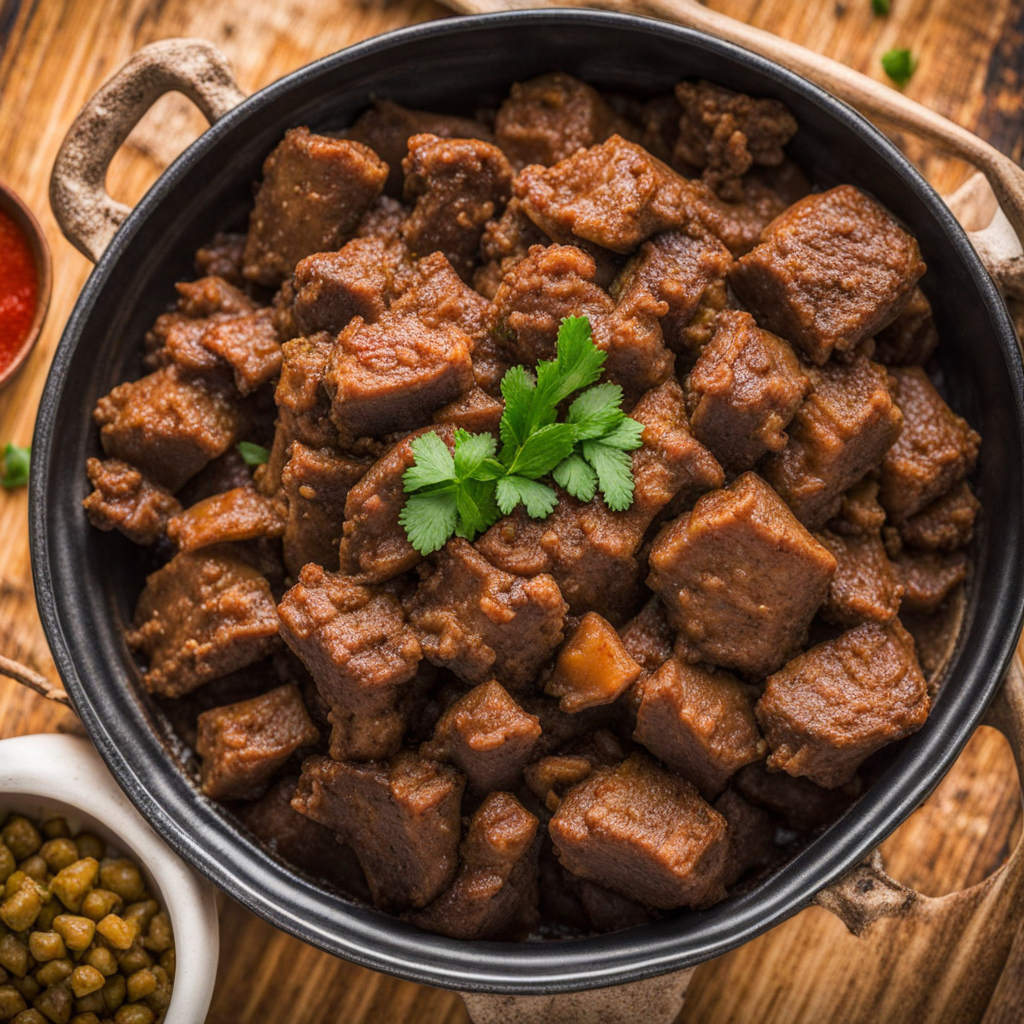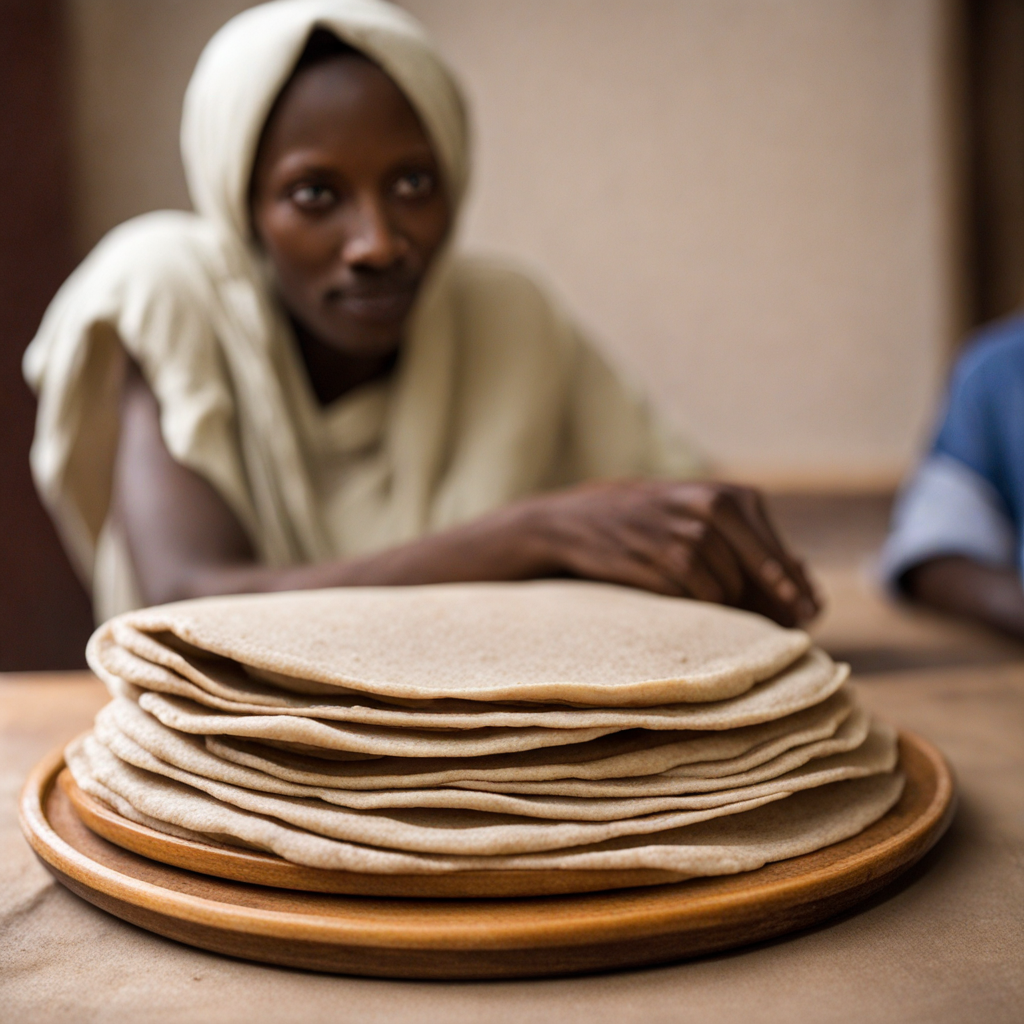Tella
Tella is a traditional Ethiopian beer that offers a unique and rich taste experience, deeply rooted in the country's cultural heritage. Brewed primarily from barley, wheat, and various local grains, Tella is often flavored with a blend of herbs and spices, including hops and gesho leaves, which contribute to its distinctive bitterness and aromatic profile. This fermentation process not only creates a refreshing beverage but also imbues it with a complexity that invites exploration and appreciation. The drink typically has a cloudy appearance, reflecting its artisanal brewing methods, and is often served in a communal setting, enhancing the social aspect of enjoying this delightful beverage. The flavor of Tella is a captivating mix of earthy and fruity notes, with subtle hints of sweetness balancing the bitterness. Depending on the specific ingredients and brewing techniques used, one can encounter variations that range from mildly sour to more pronounced herbal characteristics. The effervescence can be gentle, allowing the drinker to savor the intricate layers of taste while enjoying its refreshing qualities. Tella is traditionally consumed alongside various Ethiopian dishes, such as injera and doro wat, complementing the rich spices and flavors of the cuisine. Not only is Tella a beverage of choice during celebrations and gatherings, but it also reflects the communal spirit of Ethiopian culture. Often brewed at home or in small local breweries, it fosters a sense of togetherness as friends and family gather to share in its enjoyment. Whether you are new to Ethiopian food or looking to deepen your culinary journey, Tella provides an inviting gateway into the vibrant world of Ethiopian flavors and traditions, promising a memorable experience that lingers long after the last sip.
How It Became This Dish
The History of ጠላ (T'ela): An Ethiopian Culinary Gem Introduction Ethiopia, a country renowned for its diverse cultures and rich history, boasts a culinary landscape that reflects its ancient traditions and vibrant communities. Among the myriad of traditional dishes, ጠላ (T'ela) holds a special place, representing not just a food item but a symbol of hospitality, community, and cultural identity. This exploration of T'ela will unfold its origins, cultural significance, and its evolution over the years, highlighting its role in Ethiopian society. Origins of T'ela T'ela, a type of traditional Ethiopian beer, has ancient roots that trace back thousands of years. The origins of brewing in Ethiopia are believed to extend as far back as 5000 BCE, with evidence suggesting that the practice of fermentation using local grains was likely developed independently by various communities across the region. The primary ingredients of T'ela include barley, wheat, or sorghum, which are processed through a unique fermentation process that distinguishes Ethiopian brewing from that in other parts of the world. The word "T'ela" itself derives from the Ge'ez language, an ancient Semitic language that is still used in liturgical contexts by the Ethiopian Orthodox Church. The brewing of T'ela is often associated with local customs and rituals, with each region showcasing its own variations depending on available ingredients and traditional practices. Cultural Significance T'ela is not merely a beverage; it is deeply embedded in the Ethiopian way of life. It serves multiple purposes, from being an essential component of social gatherings to playing a significant role in religious and cultural ceremonies. In many Ethiopian communities, sharing T'ela is an act of hospitality. It is customary to serve this beer during important events such as weddings, funerals, and festivals, reinforcing bonds within families and communities. The consumption of T'ela is often accompanied by traditional foods such as injera (a sourdough flatbread) and various stews (wot). This combination creates a communal dining experience that is central to Ethiopian culture. As people gather around a large platter of injera topped with colorful dishes, T'ela is poured into shared cups, symbolizing unity and togetherness. Furthermore, T'ela has a spiritual dimension in Ethiopian culture. It is often consumed during religious celebrations, including the Ethiopian Orthodox fasting periods, where it can be enjoyed as a refreshing alternative to other alcoholic beverages. In some regions, T'ela is also incorporated into rituals and ceremonies, where it is used as a libation to honor ancestors or deities, emphasizing its importance in spiritual life. Development Over Time The evolution of T'ela reflects the broader changes within Ethiopian society. Historically, T'ela was brewed at home, with families passing down recipes and brewing techniques through generations. Women, in particular, played a vital role in this tradition, often taking on the responsibility of brewing for their households and communities. This practice not only provided sustenance but also offered a source of income for many women, particularly in rural areas. As Ethiopia modernized over the 20th century, the brewing of T'ela began to shift. The introduction of commercial brewing processes and the influence of globalization brought changes to traditional methods. While many families still brew T'ela at home, there has been a marked increase in the availability of commercially produced T'ela, especially in urban areas. This transition has introduced new flavors and varieties, as breweries experiment with modern techniques and ingredients while still honoring traditional recipes. Despite the commercialization, the cultural significance of T'ela remains intact. It continues to be a preferred beverage at gatherings and celebrations, symbolizing resilience in the face of modernization. Younger generations are often seen embracing both traditional brewing and contemporary practices, creating a fusion that reflects their identity in an ever-changing world. Moreover, T'ela is increasingly being recognized on the global stage. Ethiopian cuisine has gained popularity worldwide, with restaurants showcasing authentic dishes and beverages, including T'ela. Cultural festivals and food events have also contributed to this growing interest, allowing people from different backgrounds to experience and appreciate this unique Ethiopian beer. Regional Variations The diversity of Ethiopia is mirrored in the variations of T'ela found across different regions. Each area boasts its own unique recipes and brewing methods, influenced by local ingredients, climate, and cultural practices. For example, in the northern highlands, T'ela may be brewed using barley, while in the southern regions, sorghum or millet might be favored. These regional differences not only highlight the adaptability of T'ela but also reflect the rich agricultural heritage of Ethiopia. In some areas, T'ela is flavored with herbs and spices, adding depth to its taste and further distinguishing it from other types of beer. In rural settings, it is often brewed in large clay vessels, which contribute to the unique taste and character of the final product. These local variations celebrate the diversity of Ethiopian culture and underscore the importance of food as a marker of identity. Contemporary Relevance and Future Prospects Today, T'ela faces both challenges and opportunities in a rapidly changing world. While the rise of commercial brewing has made it more accessible, there is a growing movement to preserve traditional brewing methods and promote small-scale production. Many advocates emphasize the importance of maintaining the cultural heritage associated with T'ela, urging communities to support local brewers and traditional practices. Furthermore, with the increasing awareness of the health benefits of fermented foods, T'ela is finding a place in the modern diet. The probiotic qualities of fermented beverages are being recognized, leading to a resurgence of interest in traditional brewing practices. As Ethiopians navigate the complexities of globalization, T'ela stands as a testament to their rich cultural heritage, embodying the spirit of community and resilience. Conclusion In conclusion, T'ela is more than just a traditional Ethiopian beer; it is a cultural artifact that encapsulates the essence of Ethiopian life. From its ancient origins to its modern adaptations, T'ela has evolved while retaining its significance in social, spiritual, and communal contexts. As Ethiopia continues to embrace its diverse heritage, T'ela remains a cherished symbol of hospitality and identity—a drink that invites sharing, storytelling, and connection among people from all walks of life. Whether enjoyed at a festive gathering or during a quiet moment of reflection, T'ela continues to inspire and unite, truly embodying the spirit of Ethiopia.
You may like
Discover local flavors from Ethiopia


